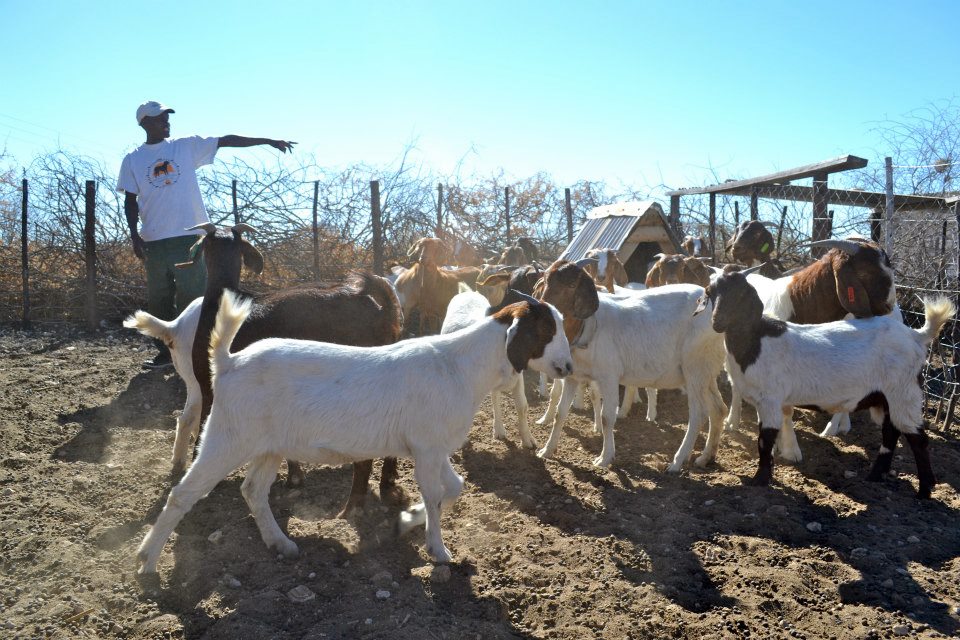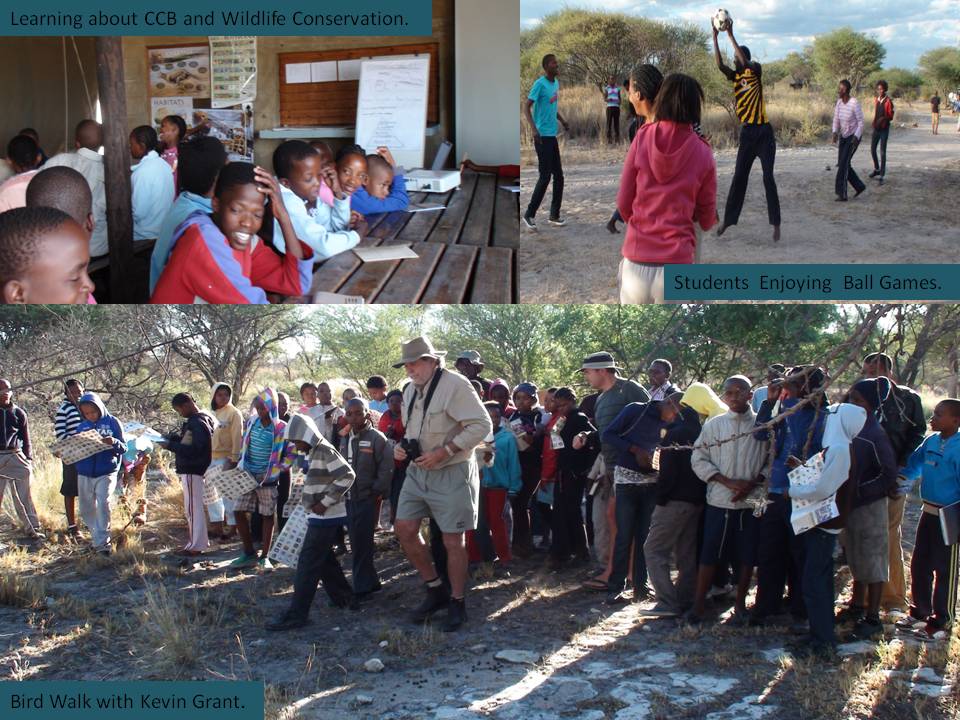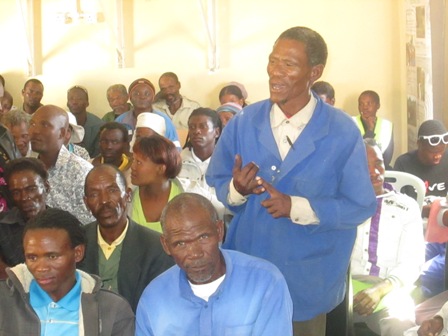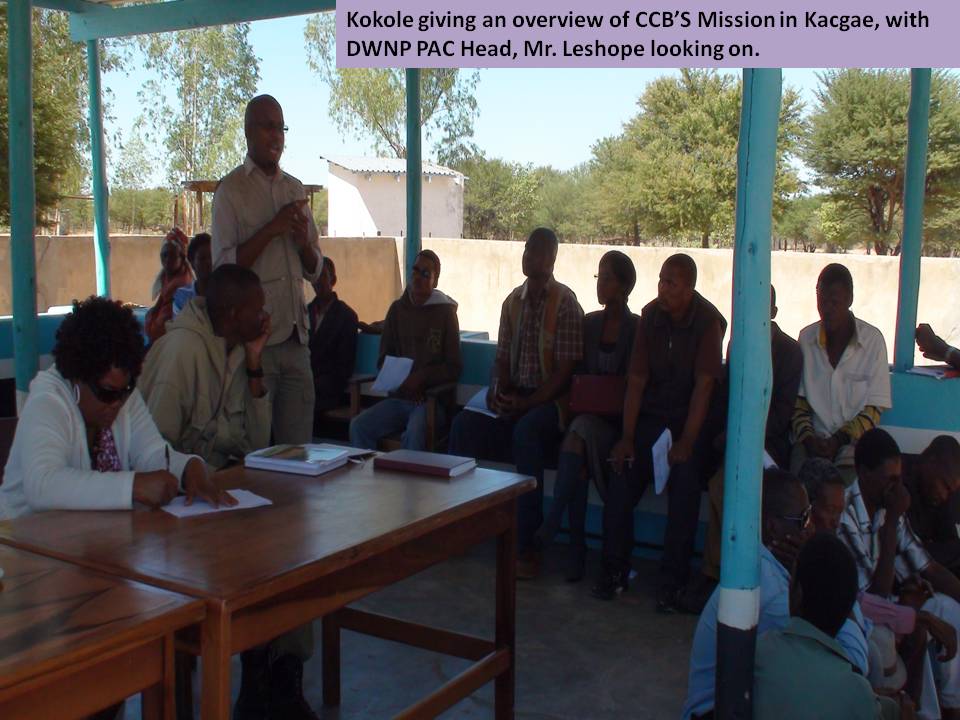Nature walks provided knowledge of Botswana wildlife and habitats. In the evenings, campfire activities were a time to share jokes, songs and games. The students also played games that tested their knowledge of Botswana's wildlife, and their team work spirit. Movie time and playing in the pool were also great favourites. The school left CCB with an enriched knowledge of environmental conservation and how they can become involved and we look forward to visiting them in the future.
|
Cheetah Conservation Botswana's Education department conducted a bush camp for Lekgolobotlo Primary School Standard 7's from the 18th to 21st April 2013. The bush camp was held at CCB Ghanzi camp at the Tiisano Education Centre. The objectives of the bush camp were to motivate and inspire students and teachers, developing positive attitudes towards the environmental issues including predator conservation. Lessons were focused on wildlife conservation, human wildlife conflict, livestock management practices, water conservation, waste management.
Nature walks provided knowledge of Botswana wildlife and habitats. In the evenings, campfire activities were a time to share jokes, songs and games. The students also played games that tested their knowledge of Botswana's wildlife, and their team work spirit. Movie time and playing in the pool were also great favourites. The school left CCB with an enriched knowledge of environmental conservation and how they can become involved and we look forward to visiting them in the future.
0 Comments
The United Nations Office for Project Services (UNOPS) conducted a workshop in collaboration with the Department of Wildlife and National Parks at Zutshwa in Kgalagadi South on April 10th 2013. This was done as a continuation of a series of mobile workshops started in 2012 and CCB has agreed to be part of this initiative. The workshop was conducted with the aim to achieve the following objectives;sensitize communities about the importance and value of wildlife, establish the root causes of Human-Wildlife conflict, establish the mitigation measures to address Human-wildlife conflict and to identify project demonstration sites. Representatives from CCB, DWNP, DWA and local trusts made presentations to cover the above objectives. In the end 5 individuals were selected to take part in the demonstration sites where predator proof kraals were to be built, guarding dogs introduced, while practicing improved livestock herding.  Ditiro Mmolotsi, the demo farm manager has done a wonderful job of managing our smallstock herd. The farm has reached a stage where it can sustain itself, the goatherd has grown and 7 male goats are ready to be sold. The money from the sales will be used to buy different things needed at the demo farm like vaccines, goat pellets and lucerne. In February and March, all the goats were dewormed and dipped. In 2013, we have only lost one goat in February due to a snake bite. A project is underway to plant lucerne grass seeds to serve as supplementary feed for the goats during the dry season. The demo farm has 5 puppies that are under training with our goats and once ready, they will be given to local farmers around the Ghanzi area. CCB continues to use the farm to showcase recommended simple farming techniques to protect livestock and improve livelihoods. The conflict mitigation study project started off a year ago in the settlement of Kacgae in the Western Kalahari. Conflict is high in their settlement because they are located within a wildlife corridor. CCB chose to work with the village in providing technical assistance and advice to the 10 farmers selected by villagers to take part in the pilot project to test some mitigation farming methods against predators. The contractual agreement was to host the farmers for a 2 day workshop in Ghanzi to prepare them for the journey, build 10 kraals for selected farmers, and provide livestock guarding dogs, shelter for the dogs, provide free veterinary services and food for the dogs for a year. Monitoring and evaluation of the project progress is carried every fortnight and it is to go on for 3 years. This year, we decided to host a celebratory anniversary in the village on the 6th of April to appreciate the hard work that the 10 farmers and villagers have put forward in making the pilot study a success. About 200 people attended the event which was beyond our expectations but proved that the community appreciated our input.
Also, invited to the event were stakeholders from the public sector, the village elders, Ghanzi Farmers Association members, villagers and CCB representatives. Different speakers of the day were all given the chance to share information with the crowd ranging from the history of the village, the challenges of human wildlife conflict, government initiatives that are in place to help communities improve their livelihoods, simple farming methods of non-lethal predator control and the progress of the mitigation project. Some of the 10 farmers were given the chance to share their farming experiences with predators before and after CCB intervention, and one farmer went to the extent of naming his dog CCB! The day was wrapped up with a tour of the 10 kraals by the guests of honour to see the goats and livestock guarding dogs and lunch was served. The success of the pilot project once again showcases CCB’s commitment in not only preserving the cheetah, other predators and their habitats but also in working and supporting the farming communities improve their welfare through their farming activities. In turn, we are hoping that they can react positively to wildlife conservation and adapt to the use of non-lethal predator control methods towards the ultimate goal of coexistence. Only by working side by side with the affected communities can conservation succeed. |
SearchArchives
May 2024
Categories |




 RSS Feed
RSS Feed
